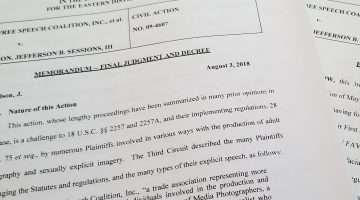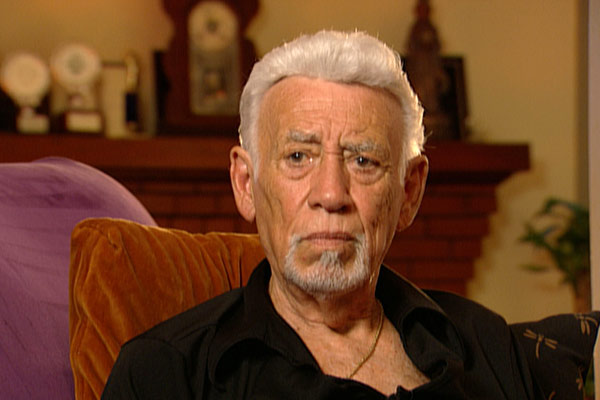 WASHINGTON – Just-released FBI files on Gerard Damiano, the director of 1972’s Deep Throat, reveal that the federal law enforcement agency was determined to snuff out the movie, as it were, and that the highest levels of the bureau were engaged in the effort.
WASHINGTON – Just-released FBI files on Gerard Damiano, the director of 1972’s Deep Throat, reveal that the federal law enforcement agency was determined to snuff out the movie, as it were, and that the highest levels of the bureau were engaged in the effort.
According to the AP, “The file includes memos between the FBI’s top men – L. Patrick Gray, William Ruckelshaus and Clarence Kelley, successive heads of the agency after J. Edgar Hoover – and field offices so widespread, it seemed nearly all of the country’s biggest cities were involved.”
498 out of 4,800 pages contained in Damiano’s file were released this month under a FOIA request by the Associated Press. Damiano died last year at 80 following complications from a stroke.
Ironically, the second-in-command at the FBI, W. Mark Felt – aka “Deep Throat,” of Watergate fame – also was one of the names that emerged from the files as having had at least an official role in the “sprawling and ultimately vain” investigation conducted by the FBI as the movie was being distributed and shown around the country. His initials appear on several of the case files.
The bureau-wide attempt to stop Deep Throat in its tracks was inspired by the belief, if it succeeded as popular entertainment, government would have failed in its effort to shift the cultural tides away from more permissive entertainment.
“Agents seized copies of the movie, had negatives analyzed in labs and interviewed everyone from actors and producers to messengers who delivered reels to theaters,” the AP reports. “Officials at every level of government tried to stop screenings and obscenity trials continued for years. But in the end, experts say, it represents the end of an era in which the government sought to stop the changing cultural tides.”
Today, the perception is that those days are unimaginable in today’s enlightened and permissive society. Indeed, Deep Throat itself seems tame, almost mainstream, in its depiction of sex and its storyline, especially compared with what is available to people today.
“Certainly today, with our broadly socially less restrictive attitude to most pornography and to sex more broadly it may seem odd that the government was spending so much effort on something like this,” Eugene Volokh, a law professor at UCLA, told the AP. “But attitudes back then were much different.”
Max Hardcore and John Stagliano might not quite agree with the sentiment, however. The jail time the former is serving and the latter may serve probably seem as unfair, if not ridiculous, as does the persecution of the producers and distributors of Deep Throat in 1972.
One could forgive a defendent in an obscenity casefor being more upset, in fact, precisely because the prevailing sentiment today seems to be that we have become so much more tolerant. Society may indeed have become more tolerant, but it has also become more desensitized to the fact that people still are being prosecuted for making sex flicks.









No Comment